First things first. If you’re a brand new fly fisherman, you might want to hold off on this piece. This is for folks who are already decent anglers, and who are willing to do everything possible to take things to the next level. If that describes you, and if you’re willing to put in the time, here’s the blueprint. What you do with it is completely up to you.
C — “C” stands for casting. It’s not enough to be a decent caster. You need to be excellent. So practice. Practice at home, or at the neighborhood park, or the local pond, or anywhere you can sneak in half an hour of casting on a regular basis. (A tip. You might want to find a place where you don’t need to worry about power lines, overhead limbs, aggressive dogs, alligators, snakes, quicksand or poison ivy.)
And don’t just practice the easy stuff. You need to do it all - reach casts, curve casts, puddle casts, double hauls, etc. Vary your distance, too. You want to be deadly from 15 feet out to 80 feet or so. You should be able to open your loop up or tighten it down, to throw casts under overhanging tree limbs, to huck bugs both big and small, to cast reasonably well with your off hand, to sling your flies into a stout wind, to feel your rod load regardless of how much line you have out … and that means hours and hours of practice. My advice is actually pretty simple. Play around. See what works, and what doesn’t. On occasion, set your rod aside, grab your reel, strip off some line and cast with your hands. Over-line or under-line your various rods and see what happens. The better you get and the more comfortable you are with a fly rod, the higher your ultimate ceiling.
C — “C” also stands for close. Honestly, it doesn’t take much talent to be a parking lot caster. I know a fair number of guys who can boom out casts on the asphalt - and most of them can’t fish worth a damn. You need to get it into your head that casting close and fishing close are vital if you want to take things to the next level. Unless you’re fishing with binoculars strapped to your face, you’re going to see more - and catch more fish - at 30 feet than you will at 70.
T — “T” is for time. There’s no substitute for time on the water. None. You can fish ten days a year and be an adequate angler. If you want to be great, though, you’re looking at a minimum of 50 days, with 100 being way better and 200 being better yet. Experience is the single greatest teacher and the only way you gain experience is by heading out with a fly rod in your hand.
More Like This
B — “B” stands for bank. Plop your butt down on the bank and spend a fair amount of your time looking at the water right in front of you. Here’s a secret. This is the one step that everyone thinks they can skip. Here’s another secret. The really incredible anglers out there realize that observation and awareness are the single most important skills you can possess on a trout stream. So until you’ve trained yourself to observe what’s happening around you while you walk, wade or cast, you should sit your ass down on the bank and pay attention to what’s happening in your immediate vicinity. Ten minutes is a minimum. Half an hour is better.
V — “V” is for visualization. I’m assuming that, as a decent angler, you already know what you need to do to catch a particular fish. Now visualize that happening. Before you make a cast, you should know what that cast needs to look like. Same with the drift, or the swing, or the strip. You should always anticipate the strike, so that you’re ready to react when it happens. And if it doesn’t come, then you have to be able to reset and focus your undivided attention on the next cast.
S — “S” stands for stop sign. Flashing red light. Do not pass Go, do not collect $200. You’ll notice I mentioned “undivided attention” up above. That, my friends, is hugely important. The best anglers possess a single-mindedness that approaches mindlessness. There are no extraneous thoughts. Nothing intrudes. There’s no job, there’s no spouse or kid or paramour. There’s no concern for the next college football game, or your next meal, or the fact that your boss doesn’t pay you enough, or that your car needs new brakes. My apologies, but if you can’t put all that other stuff aside and focus on your fishing with a singular intensity, then you will never be a great angler. Absolute attention and focus are prerequisites; anything less is a deal breaker.
G — “G” is for generalist. Maybe you want to be a great dry fly angler, or perhaps you can’t wait to be a stud nymph fisherman. Doesn’t matter. You need to know it all. That’s the only way the picture will ever become complete, and it’s the only way you’ll ever figure out which styles of fishing you really, truly enjoy. Which means you need to dead-drift dry flies of all shapes and sizes, and skate them, and dead-drift nymphs, and swing nymphs and wet flies, and fish streamers fast & slow. An ace fly fisherman can tuck a hopper up against the bank at 80 feet, then swing a soft hackle as the hatch gets going, then fish PMDs to rising rainbows at 30 feet, then high stick a marabou streamer through a boulder garden as the sun drops and the big browns come out to hunt. You don’t have to love it all … but you have to know it all.
T — “T” is for tie your own flies. There may be a great angler out there who doesn’t tie his or her own flies, but I wouldn’t bet on it. It’s hard to really, truly understand how flies work until you create them yourself. If you have a vise and a little bit of skill, get to it. If not, it’s time to take the next step.
Q — “Q” is for questions. There are two specific ones that you should ask yourself on a regular basis while you fish. The first is pretty simple. What am I seeing? Unfortunately, most folks are more-or-less oblivious to everything that’s happening right in front of them. They fish by rote, with a basic paint-by-numbers approach. Ask yourself what you’re seeing, and then follow up with: “What is this telling me?” or “What am I learning here?” The water offers a million “tells” for anyone who pays attention, and your questions - and your subsequent answers - will point you towards the techniques and flies you need to use.
E — “E” is for equipment. Your rod should bend, you reel should turn, your line should float (if it’s a floating line) or sink (if it’s a sinking line). Find stuff you like, then buy it and use it. In spite of the fact that gear inspires a huge amount of magazine ink, not to mention a fair amount of angling-based envy, it’s relatively far down the list of what’s really important in taking that next big step.
L — “L” is for the last thing: Love. Love it. Love your time on the water. Love the fish you catch. Feel the passion; revel in it. Recognize that you are blessed to spend time on the stream, and that fishing for trout is about as cool a thing as you can do with waterproof pants on. Honestly, the more you love it, the better you’ll get - and the better you get, the more you’ll love it.
Oh, and don’t forget to fight for your trout fishing. If you cherish the places you fish, and the trout you target, then it’s time to stand tall. Fight for our rivers and streams, and vote for politicians who will protect our fisheries and leave something wonderful for future generations. It’s the very least we can all do.



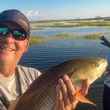
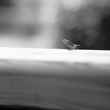

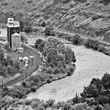
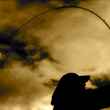

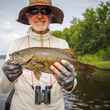
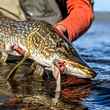
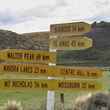
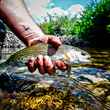

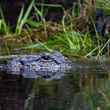


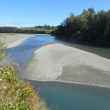

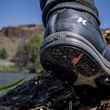
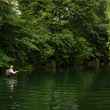
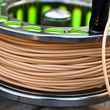


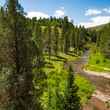
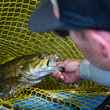
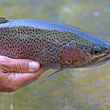
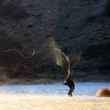
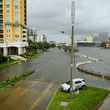
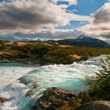
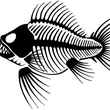
Comments
Adam replied on Permalink
As an aspiring "decent" fly-fisher I find "B"-bank to be the most difficult. Not just because it's a challenge to curb my enthusiasm once I pull up to the river, but because as a neophyte to both fly-fishing techniques and river ecology I'm never quite confident translating my observations of the river to fly-fishing success.
However, I've found it a benefit to put in some "bank" between the covers of books. Reading may not be a substitute for actual observation, but I really think it can help the amateur understand what it is that might be going on out there. Once you get some clues that resonate with prior experience-- either fishing or reading-- then it seems easier to know what your observing.
Great read, Todd!
Chad Shmukler replied on Permalink
Excellent point, Adam. The knowledge you can absorb from between the pages of books pays huge dividends when it comes time to "tune in" to what's going on in the water you're perched on. I find such reading 10x more valuable than reading about fly design, fishing techniques and so on.
Born replied on Permalink
I've been noting a strategy for improving "B" bank: the addition of "P" pipe, and a little puff while looking bemused.
rick replied on Permalink
I have worked hard toward this goal and I've learned that the one thing that helps to improve all of the "other" suggestions id TIME on the WATER.
TOTW helps CASTING because real casting with currents beats lawn casting hands down.
TOTW helps BANK watching because you have the time; less pressure to have to be in the act of fishing because you just don't get out that much.
TOTW helps you figure out that you can get much closer to trout than you would think otherwise. Especially happy fish. Feeding trout lose their fear.
TOTW helps you to visualize and focus in ways that can only be accomplished by being there; experience is the ultimate teacher. It also allows you to observe other anglers and to talk with them about stream/river specifics.
TOTW helps you to generalize because you simply encounter a greater variety of conditions.
TOTW really helps you to develop awareness. Really, really works.
TOTW makes you a much better fly tier as you get to observe the bugs specific to your water. Sizes, colors, forms, shapes, hatch times, hatch densities, bug behaviors, etc. It also allows you to observe how trout respond your own style of fly. The one thing you will notice is just how wildly over-dressed store bought flies are. Mayflies are much more delicate and dainty than you might think, and you get to match that quality- something you really can't buy in a fly shop.
TOTW helps you to appreciate the gear that really matter as opposed to the frilly stuff that is truly superfluous. TOTW also helps you handle and control your gear so you become efficient with it; include knot tying, re-rigging, efficient storage and retrieval of key items.
TIME on the WATER is a commitment definitely worth making. Without it, you simply cannot become the best you could be.
Anonymous replied on Permalink
Good job - no place I'd rather be than on the water. Expect to hook a fish with every cast and seek opportunities to learn something worthwhile on every trip, whether fishing or guiding. I liked the part about tying your own flies - will definitely make you a better fisherman. Thanks. "Tie 1 On"
Jake Klaus replied on Permalink
Fun read, Todd. I'm honestly able to give myself an A on all of those but one- fly tying. One of these days... Keep the articles coming, sir. You're a fine writer.
Brad S replied on Permalink
Great article. Obviously by the number of replies it has resonated with many of us. Thanks
Joe Mairo replied on Permalink
So this past summer I took my 8 wt. out and measured my cast. The line is color coded and the front part of the taper is 40 feet, followed by running line. Once running line is in the air it gets weird, I can feel it hinging where the running line starts. I can double haul and shoot some running line reaching a 60 foot cast. Meaning the fly goes 60 feet: 40 plus the leader, plus some running line that I shot. But man o man, to me, an accurate 80 foot cast on a single handed fly rod is amazing. How much do you think fly line and rod matter vs. technique/timing etc?
Frank J Lowry replied on Permalink
I'll never be a great angler. I don't have the ability nor the drive. But I do LOVE my time on the water and try to help others. Excellent article, thanks.
Glenn Dotter replied on Permalink
This is a very good article. I have been flyfishing for 60 years and find the writer hit the nail on the head. The commentor who wrote about TIME ON THE WATER. TOTW also was on the mark. I was taught by 2 excellant flyfishermen. My dad RT DOTTER and his bud Dick Rader. I have always said if you watched these 2 and they weren't catching fish, dont even rig your rod. Dick used to keep a book on each fish. Type, what fly, weather, water temp, and location. It gave him bank time. My dad taught bank time too, but he stressed taking time to enjoy your surroundings and to examine the water. When I was young though, I spent from sun up to sunset in the water not really understanding what these men meant. As I got older, it started to sink in. Now I cherish their teachings and my TOTW and my bank time. Am I a great fly fisherman? I'd like to think I'm pretty good, but RT and Dick would probably say I've got more to learn. When you learn from the best, you just naturally strive to be like them. The writer and the commentors are all in agreement. You just have to keep learning and recognize you are blessed to understand that.
Steve replied on Permalink
all these great fly casters are always fishing wide open western streams. Great casters come from the east since a roll cast is your best approach and knowing the lies your best info.
Chip replied on Permalink
This is a very thoughtful and cogent essay about the essence of becoming a 'great' trout fisherperson. Like all things worth having, competence on the stream is hard to come by, and is not given freely. If it were, it would not be so cherished when it is finally achieved. These principles will stand many an angler in good stead as he/she seeks to up their game. Thanks for these insights.
charlie greer replied on Permalink
I love to fish and avidly read articles about how to get better. Just one problem, I am an angler but I am female. It's time for everyone to talk to all anglers, not label us as fishermen, as we are not men.
Glenn Dotter replied on Permalink
You know, I read ypur comment over and over. I was raised to respect and care for women, to open doors and seat them. When I hred people I hired as many women as men, not because they were women, but because they were qualified
Call yourself an angler. Call yourself a flyfisher. Call yourself a fisherwoman. I dont care. I dont brag I am a man. Why must you brag you are a woman? If you want to fish, fish. You are accepted as a fisherperson. Quit shoving your womanhood in the face of a writer who was genuinely trying to help you, but didnt use what you believe as the proper word
No harm or omission was meant by the author or any of the commentors including myself. I suppose Ill be chastized for this comment, but....
Pages